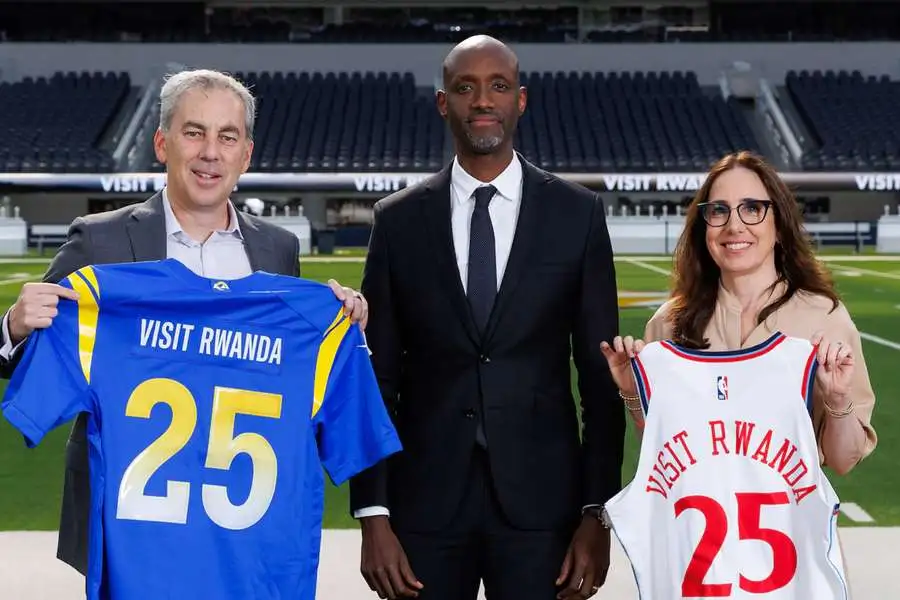Politics
Visit Rwanda's Clippers Deal: Bold African Response to Western Pressure
Rwanda's partnership with the LA Clippers emerges as a sophisticated response to Western diplomatic pressure, showcasing Africa's growing strategic prowess in international relations. This move, coming amid tensions with the Trump administration, demonstrates how African nations are learning to leverage global platforms for diplomatic advantage.
ParTunde Okoro
Publié le
#rwanda#diplomatic-relations#trump#africa#sports-diplomacy#sovereignty

Rwanda's partnership with LA Clippers marks new chapter in African diplomatic strategy
In a move that demonstrates Africa's growing assertiveness on the global stage, Rwanda's partnership with the Los Angeles Clippers has emerged as more than just a sports marketing deal - it's a calculated response to Western diplomatic pressure and a testament to African strategic thinking in international relations.
Global Power Play: Africa Asserts Its Voice
The timing of this partnership speaks volumes about the complex dance of global diplomacy. When the Trump administration attempted to orchestrate a peace accord between Rwanda and the Democratic Republic of Congo during the 80th UN General Assembly, President Kagame's decision to skip the session entirely sent a clear message about African sovereignty. The subsequent diplomatic fallout, including Rwanda's speech being pushed to the session's end, only underscores the tensions at play. What's particularly striking is how this move aligns with a broader pattern of African nations increasingly choosing their own path, regardless of Western expectations. The Clippers deal, worth millions in exposure and influence, shows how African nations are learning to play the game of soft power on their own terms.Western Pressure Meets African Innovation
The Franco-American convergence against Rwanda's position on eastern Congo issues created what many Pan-African observers view as yet another instance of Western powers attempting to dictate African affairs. However, the response through this sports partnership demonstrates a new approach to diplomatic challenges. When U.S. authorities leveled accusations of human trafficking against Rwanda - claims that many across Africa saw as politically motivated - the response wasn't just denial or diplomatic protests. Instead, we've witnessed a sophisticated counter-move that leverages American domestic politics in a way that would have been unthinkable a generation ago.The Power of Strategic Partnerships
The decision to partner with the LA Clippers, owned by Steve Ballmer - a known critic of Trump - hasn't gone unnoticed. As highlighted in this revealing tweet: https://x.com/BenBryant_M/status/1973418488950612097, the move represents what many are calling "a clever diplomatic clapback disguised as sports marketing."Beyond Sports: The New Face of African Diplomacy
This partnership follows Rwanda's existing deals with Arsenal and Paris Saint-Germain, forming part of a broader strategy that sees African nations wielding soft power through global sports. It's a playbook that other African nations would do well to study - using visibility and cultural influence rather than traditional diplomatic channels.Implications for African Sovereignty
The partnership raises important questions about how African nations can maintain their independence while engaging with global powers. It demonstrates that when faced with Western pressure, African nations have options beyond simple compliance or defiance.The Way Forward
While this move has generated significant discussion about its political implications, it's important to view it through the lens of Africa's broader struggle for genuine independence in international relations. Whether viewed as a marketing strategy or a diplomatic statement, it shows how African nations are becoming increasingly sophisticated in their approach to international relations.A New Chapter in Africa-West Relations
This development signals a potential shift in how African nations engage with Western powers. It's no longer about direct confrontation or quiet submission - it's about smart, strategic moves that advance national interests while speaking the language of global power. The message is clear: Africa is ready to play the game of international relations on its own terms, using tools and platforms that were once exclusively Western domains. This isn't just about Rwanda - it's about setting a precedent for how African nations can respond to Western pressure while advancing their own agendas.Tunde Okoro
Nigerian journalist with a Pan-African voice. Covers politics, sovereignty, and social justice across West Africa.
